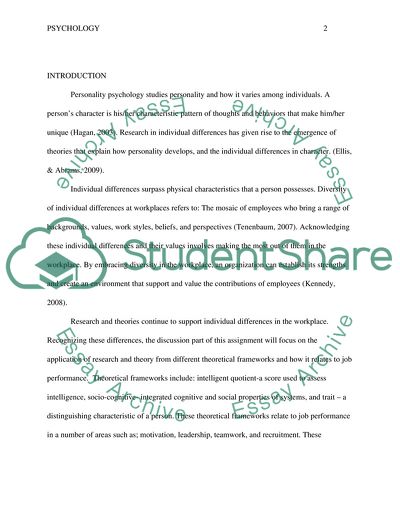Cite this document
(Individual Differences and the World of Work Essay Example | Topics and Well Written Essays - 1750 words, n.d.)
Individual Differences and the World of Work Essay Example | Topics and Well Written Essays - 1750 words. https://studentshare.org/psychology/1813757-critically-evaluate-using-examples-how-research-and-theory-in-individual-differences-is-used-in-occupational-and-workplace-contexts
Individual Differences and the World of Work Essay Example | Topics and Well Written Essays - 1750 words. https://studentshare.org/psychology/1813757-critically-evaluate-using-examples-how-research-and-theory-in-individual-differences-is-used-in-occupational-and-workplace-contexts
(Individual Differences and the World of Work Essay Example | Topics and Well Written Essays - 1750 Words)
Individual Differences and the World of Work Essay Example | Topics and Well Written Essays - 1750 Words. https://studentshare.org/psychology/1813757-critically-evaluate-using-examples-how-research-and-theory-in-individual-differences-is-used-in-occupational-and-workplace-contexts.
Individual Differences and the World of Work Essay Example | Topics and Well Written Essays - 1750 Words. https://studentshare.org/psychology/1813757-critically-evaluate-using-examples-how-research-and-theory-in-individual-differences-is-used-in-occupational-and-workplace-contexts.
“Individual Differences and the World of Work Essay Example | Topics and Well Written Essays - 1750 Words”. https://studentshare.org/psychology/1813757-critically-evaluate-using-examples-how-research-and-theory-in-individual-differences-is-used-in-occupational-and-workplace-contexts.


